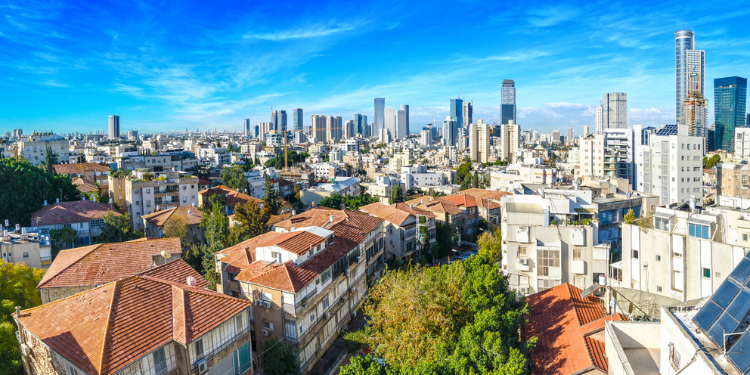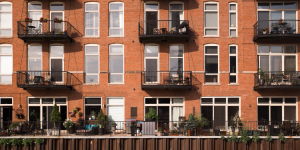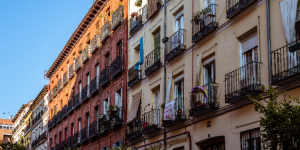
The Middle East is an economically diverse region that includes countries with a common heritage, vastly different levels of per capita income, and a diverse economy. Historically, the residential property market in the region is on a steady course, but prices are expected to rise modestly over the next couple of years with the rising demand and recovery of the economy.
However, according to a Reuters poll of housing analysts in 2021, property prices in Dubai will remain affordable during that time.
The Middle East is a common goal for expats to live in or to invest in, but property prices can be very high. Doha, for instance, has ranked the top most expensive city last year in terms of the cost of rent in the Middle East. The city is just ahead of Dubai, Abu Dhabi and Kuwait, according to the global cost of living index. Also, according to this report, Tel Aviv, is the city with the most expensive properties in the Middle East. Due to the strength of the national currency against the dollar and increases in prices for transport and groceries (inflation) in the wake of the coronavirus pandemic, Tel Aviv has also been ranked the world's most expensive city to live in globally. The Israeli city overpassed the previous year's joint winners of Paris, Hong Kong and Zurich, according to the authoritative ranking system compiled by the Economist Intelligence Unit (EIU).
In Doha, on average, a one-bedroom apartment costs QAR 5,804.88 ($1,549) a month. This means that renting a one-bedroom apartment in the capital will cost more than in countries like the Netherlands and Germany but won't overpass Luxembourg ($1,764 per month) and Switzerland ($1613.18 per month). Although the Middle East can have places with expensive housing, Cairo (Egypt), Tunis (Tunisia), Algiers (Algeria), Muscat (Oman) and Riyadh, Saudi Arabia tend to have a more affordable cost of living.
High rent prices are positive for expats interested in investing and not for those who plan to live. See the most expensive and the most affordable rents, according to the index. The report compares all cities to New York City, which has been given a base score of 100. This means that the cost of rent in Doha, on average, is equivalent to almost 52 per cent of prices in NYC. In Asia, Doha ranks fifth, coming shortly after Hong Kong (76.21), Singapore (65.82), Nagoya (63.66) and Tel Aviv-Yafo (51.76), according to the index.
Middle East property prices overall by rent index
From the most expensive rents to the most affordable:
- Tel Aviv-Yafo, Israel (51.76)
- Doha, Qatar (50.50)
- Dubai, United Arab Emirates (43.7)
- Abu Dhabi, United Arab Emirates (43.82)
- Jerusalem, Israel (39.44)
- Petah Tikva, Israel (32.29)
- Kuwait City, Kuwait (31.02)
- Ajman, United Arab Emirates (29.23)
- Limassol, Cyprus (29.16)
- Beirut, Lebanon (29.14)
- Manama, Bahrain (27.67)
- Haifa, Israel (23.42)
- Tehran, Iran (23.06)
- Beersheba, Israel (22.72)
- Sharjah, United Arab Emirates (22.08)
- Larnaca, Cyprus (19.28)
- Nicosia, Cyprus (18.90)
- Muscat, Oman (18.76)
- Isfahan (Esfahan), Iran (17.57)
- Paphos, Cyprus (15.83)
- Riyadh, Saudi Arabia (15.3)
- Al Khobar, Saudi Arabia (15.23)
- Baghdad, Iraq (12.612)
- Erbil (Irbil), Iraq (12.19)
- Ad Dammam, Saudi Arabia (11.87)
- Jeddah (Jiddah), Saudi Arabia (11.19)
- Amman, Jordan (0.91)
A positive point to consider: taxes
Despite property prices being really high in the Middle East, there isn't a special tax regime for expatriates in most of them. In the UAE and some gulf counties as Bahrain, Kuwait, Oman, and Saudi Arabia, all properties are tax-free. That means expats also benefit from the area's policy of not taxing individuals.
There's no property tax on homes, as well as no income or inheritance tax. In the UAE, everyone living and working is considered a resident of the country, obtaining a UAE Tax Residency Certificate. That is, under the condition of their physical presence in the country for more than 183 days within any 12-month period. However, in the kingdom, expats have to cover a 4% transfer tax when a property changes owner. That fee is supposed to be split between the buyer and seller, but it's usually the buyer who foots the bill. Additionally, expats, as all residents of Dubai, can expect to pay a municipality tax equivalent to 5% of their home's annual rental income to fund local services, according to the Dubai local government website.



















